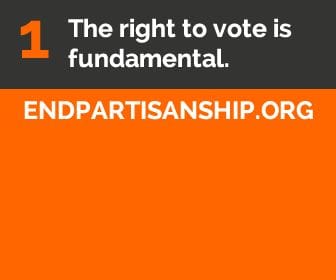The Unified Primary: A New Way to Conduct Nonpartisan Elections

Entrepreneur

Mark Frohnmayer is spearheading an initiative in Oregon to completely reform the electoral system in the state. The system combines a nonpartisan top-two primary system -- similar to the elections in California -- with approval voting. Frohnmayer calls this new nonpartisan election, "The Unified Primary."
It is important to make a distinction between "open" and "nonpartisan" systems as the words are often interchanged, but they don't mean the same thing. An "open" system merely means that all voters can participate, but it does not mean that the system is nonpartisan.
While nonaffiliated and third party voters are allowed to participate in an open partisan primary, their options are limited as they have to choose between two ballots -- Democratic or Republican. A nonpartisan system, however, uses elections where all voters and candidates, regardless of political affiliation, participate on a single ballot.
Oregon currently uses closed primaries in which only members of the major political parties can participate in the primary elections. Frohnmayer's initiative, called the "Fair and Unified Elections Act of 2014," would completely overhaul elections in the state "to create a uniform election system for partisan offices in which each elector has, at the primary election, an equal voice on each candidate’s ability to advance to the general election."
The proposal would create an electoral system similar to the top-two system approved by California voters in 2010. In California, Proposition 14 created primary elections in which the entire electorate is given equal access to a single ballot on which all candidates running for the same office are listed. The top two vote getters then move on to the general election.
https://www.youtube.com/watch?v=PCL9CKB7ns8
A major argument in favor of the top-two system is that voters who do not register with the major political parties should not be marginalized by a system that denies them meaningful participation in the voting process.
"I think in America we ought not to have, as an obligation, the requirement to join a party in order to have special access to the ballot," Steve Peace, author of California's Top-Two Initiative, argued in 2010.
Proponents of nonpartisan election reform argue that closed primaries, and even partisan open primaries, discriminate against voters and candidates who choose not to affiliate with either the Democratic Party or the GOP. If passed, Oregon voters will not only have equal access to a single ballot, they will be able to vote for as many candidates as they want. It is a process called "approval voting."
Approval voting, unlike the current voting system, allows voters to select one or more candidates running in the same election. In a primary election, this essentially guarantees that the two candidates who move on to the general election truly have the most support among the electorate and eliminates the concept of the "spoiler candidate."
https://www.youtube.com/watch?v=db6Syys2fmE<---
Check out this complete explanation of how approval voting works from the people at The Center for Election Science.
From the initiative:
Specifically, each voter may cast a vote in favor of any and all candidates the voter approves to advance, and in so doing may approve of more than one candidate for a single office. The two candidates for each office receiving the most votes from all voters will advance to the general election, in which the winner will be the candidate receiving the greatest number of votes cast at the general election.
"Compared to other primary systems, the 'Unified Primary' is less restrictive for voters because it does not limit them to selecting only one candidate in a field of many," Frohnmayer said, "and it does not limit them to selecting only from only one party's candidates."
Like in most cases where nonpartisan election reform is proposed, he knows there is a good chance of opposition from major party leaders.
"Mainstream political parties may see this as a disadvantage because it does not encourage party loyalty, especially among moderate voters who do not identify strongly with either party."
However, with the addition of approval voting, major parties do not have to be concerned with vote splitting among more moderate or independent-minded members -- a major concern among opponents of the top-two primary system.




